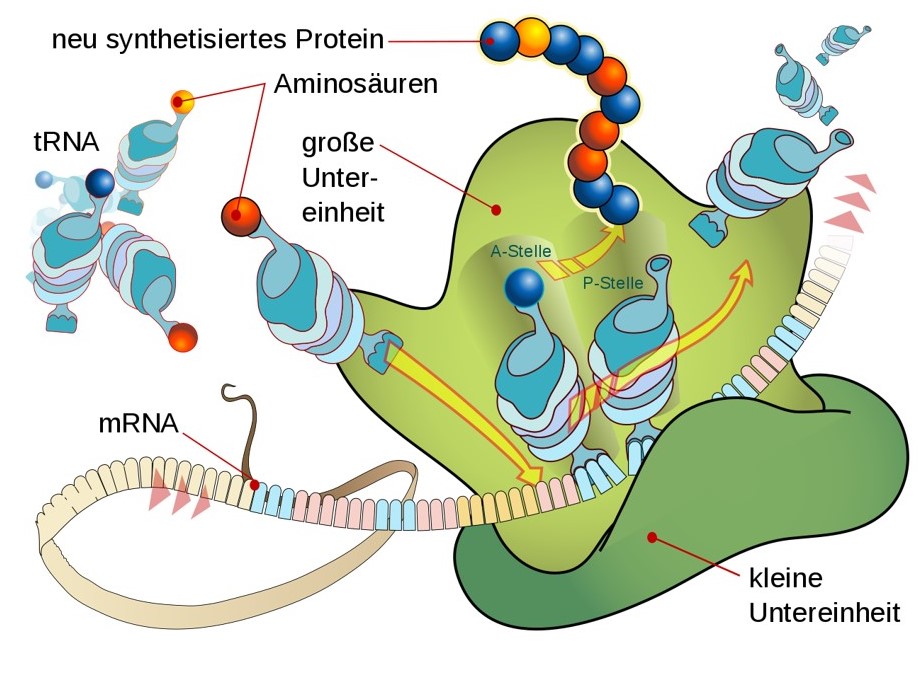More than ten years ago, researchers discovered that an inconspicuous viral protein of a closely related SARS coronavirus called Nonstructural Protein 1 (Nsp1) blocks the host's own protein production at the ribosomes. With the help of human cells and the high-resolution cryo-electron microscopy, they have now succeeded in closely following this mechanism.
In the cells' ribosomes, amino acids are linked together according to the template of a messenger-RNA to produce a protein. The ribosomes act as a catalyst. This is a central process in protein biosynthesis. The ribosomes act as a catalyst. It consists of two subunits, one small (40s) and one large (60s). The viral protein Nsp1 attaches itself to the small subunit and thus blocks the entrance of the channel into which messenger RNA normally threads.

Scheme showing the translation of mRNA and the synthesis of proteins at the ribosome.
Source: Wikipedia, https://commons.wikimedia.org/w/index.php?curid=7199311
Therefore, proteins can no longer be produced. By shutting down the cells' own protein production, the virus protein Nsp1 also switches off the innate immune defense by blocking a signaling cascade that is central to it. The cell dies in the course of time.
The scientists hope that the findings will enable them to develop a new treatment for the virus.
Original publication:
M. Thoms et al (2020). Structural basis for translational shutdown and immune evasion by the Nsp1 protein of SARS-CoV-2. Science 10.1126/science.abc8665 (2020). https://science.sciencemag.org/content/early/2020/07/16/science.abc8665
Source:
https://www.uni-muenchen.de/forschung/news/2020/beckmann_covid19.html




 Dr. rer. nat.
Dr. rer. nat. Menschen für Tierrechte - Tierversuchsgegner Rheinland-Pfalz e.V.
Menschen für Tierrechte - Tierversuchsgegner Rheinland-Pfalz e.V.